News & Media
Unisa LIS reflect on successful 2025 external peer review
The review began with an opening session led by Prof Mpho Ngoepe, Executive Director, LIS, who warmly welcomed internal stakeholders and the panel of external reviewers. In his remarks, Ngoepe emphasised the importance of reflection and learning through peer engagement: "This peer review is not just a compliance exercise; it is a reflective process that allows us to pause, learn and grow. Through the eyes of respected colleagues, we gain new perspectives that help us improve our service delivery, impact and alignment with institutional goals."
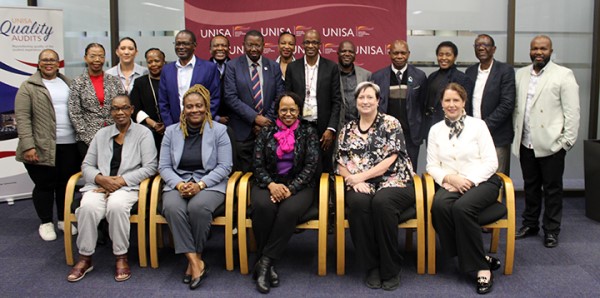
Members of Unisa Library Management and Peer Review Panel
Prof Thenjiwe Meyiwa, Vice-Principal of Research, Postgraduate Studies, Innovation and Commercialisation, delivered a compelling welcome, highlighting the LIS as a cornerstone of academic success and access to knowledge.
"This peer review is not a mere formality: it is an opportunity to deepen our practice, strengthen our systems, and reaffirm our role in shaping futures through knowledge."
Also present was Prof Lumkile Lalendle, Executive Director of Quality Assurance and Enhancement, who reflected on the institution's commitment to continuous improvement and quality enhancement. He addressed the attendees, stressing that peer review is a vital mechanism for ensuring transparency, relevance and institutional alignment. Lalendle praised the LIS team for embracing the review as a constructive opportunity to refine its systems and respond to emerging academic demands.
The external peer review panel consisted of experienced scholars and LIS professionals from Africa and beyond. Their expertise brought a global perspective to the evaluation of Unisa’s LIS.
Panel members
- Prof Marlene Holmner, Chairperson: Associate Professor and Head, Department of Information Science, University of Pretoria
- Dr Elisha Chiware, Director and Associate Professor, Cape Peninsula University of Technology Libraries
- Prof Maria Frahm-Arp, Executive Director: Library and Information Centre, University of Johannesburg
- Dr Joseph Ndinoshiho, University Librarian: University of Namibia
- Dr Angela Okpala, Associate Professor and University Librarian: National Open University of Nigeria
- Dr Siviwe Bangani, Director of Research Services: Stellenbosch University Library and Information Service
- Prof Helen Byamugisha, Associate Professor: Department of Library and Information Science, Kabale University, Uganda
- Dr Giannis Tsakonas (online reviewer), Director: Library and Information Centre, University of Patras, Greece
- Wondimeneh Mammo Amenu, Assistant Professor and LIS Professional: Ethiopia (reviewer for the Ethiopia Regional Learning Centre)
Over the course of five days, the panel participated in presentations, interviews and site visits in the regional hubs of Unisa. These engagements allowed for a comprehensive evaluation of how the LIS supports teaching, learning, research and student success in an open, distance and e-learning environment.
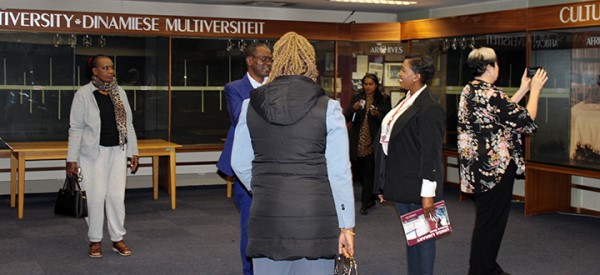
Panel members touring the library
Stakeholders from across the university appreciated the opportunity to exchange ideas and learn from the diverse experiences of the panel. The review process fostered critical dialogue, collaborative learning and a reaffirmation of the commitment of LIS to serve a diverse academic community.
The panel consulted various LIS stakeholders across all branches comprising colleges, support services to the LIS, including Information and Communication Technology, Human Resources, Enterprise Risk Management, regions, students and regional Student Representative Council, among others.
As Africa’s largest academic library system in an open, distance and e-learning environment, Unisa LIS stands to benefit significantly from the insights and recommendations emanating from the review. The LIS now looks forward to implementing the findings outlined in the final report of the panel.
"We see this engagement not only as a measure of where we stand, but as a catalyst for strengthening our systems and reaffirming our commitment to inclusive, innovative library services," said Ngoepe.
Peer review has reinforced Unisa’s mission of providing transformative academic library services that respond to local and global educational needs, ensuring that the institution remains a leader in distance learning excellence.
* By Itumeleng Mpete, Marketing Coordinator, Library and Information Services
Publish date: 2025-05-28 00:00:00.0


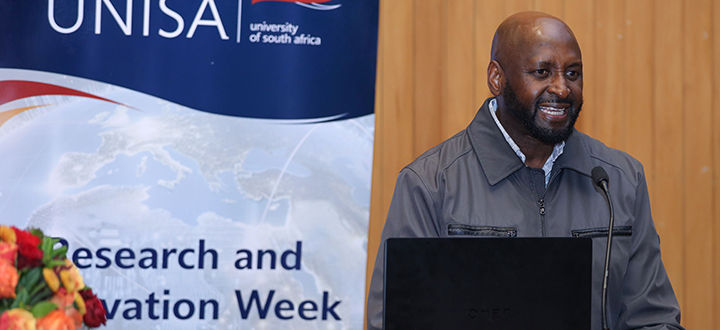 Research with impact – moving beyond bean-counting
Research with impact – moving beyond bean-counting
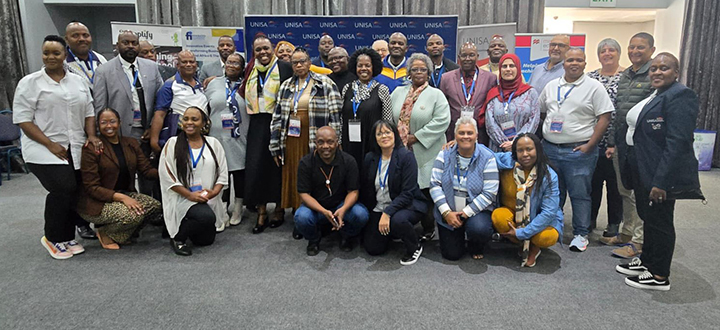 Exploring resources to mitigate the digital divide in rural areas
Exploring resources to mitigate the digital divide in rural areas
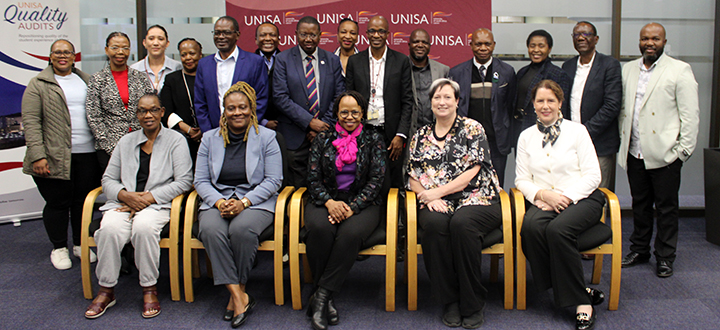 Unisa LIS reflect on successful 2025 external peer review
Unisa LIS reflect on successful 2025 external peer review
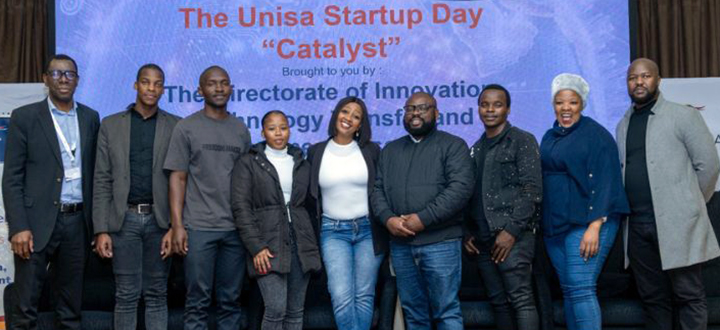 Entrepreneurs shine during Unisa’s Start-Up Day
Entrepreneurs shine during Unisa’s Start-Up Day
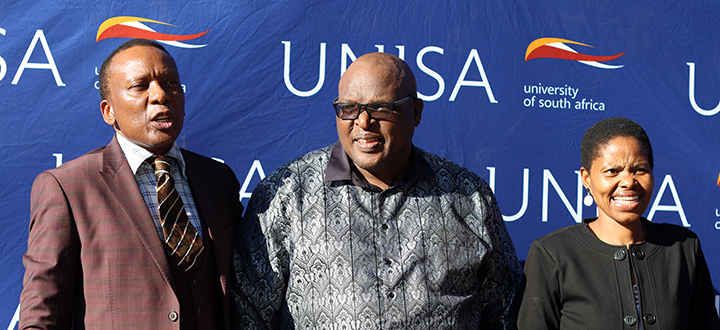 EC region hosts successful stakeholder engagement
EC region hosts successful stakeholder engagement